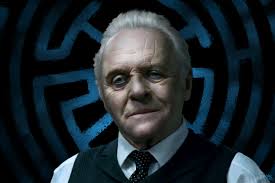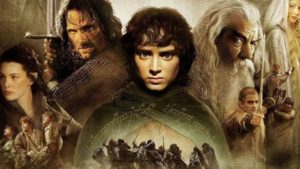Last year I watched the first season of the Westworld series.
In a nutshell, the show has it all: astonishing scenery, interesting heroes and great actors, among whom the genius of Anthony Hopkins especially stands out. Hopkins is exceptionally brilliant; it was only because of him that I watched this series to the end. I got great pleasure from every shot in which he appeared. He knows how to act in semitones – a rare gift.
The plot itself is built around the humanity – androids relationship, a popular topic right now. Androids are robots created by humans that are indistinguishable from real people. Except – after each time they die they are repaired, their memory is swiped and, good as new, they once again go out into the amusement park to play their part. And there various people – rich visitors of the park – can do whatever they want with them, depending on personal whims and temperament.

In the course of the series the characters talk a lot about consciousness. Especially the creators of the amusement park – Dr. Ford (played by Hopkins) and his partner Arnold (already deceased in the main storyline, but the action takes place in several timelines at once).
So, what happens to be a point of interest is that never – not once – do any of the characters speak about the soul. And it is exactly what distinguishes a human from an android, even if the latter is super-perfect and indistinguishable from a real person.
Apparently, for the creators of the series a human is only a biomechanical system – complex, but one that can easily be copied.
There is no soul – therefore there is no Higher Power, therefore there is nothing. This is absolute atheism (not in the sense of non-religiousness, but in the sense of faithlessness).
What is even more interesting is that not a single reviewer writes about this (and I have read many reviews). It would seem that raising the topic would be indecent.
This is actually a prominent trend in contemporary art – including cinema, literature, games, etc.
Somewhat earlier I had watched the first season of the Game of Thrones series. After that I watched some separate episodes, especially those featuring dragons (I have a weakness for dragons). Again, the series has got great actors (I especially liked Peter Dinklage in the role of Tyrion Lannister, but the cast is very strong in general as well).

The setting is a representation of medieval Europe with the addition of separate locations (inhabited by the living dead and the nomads). The series was based on George Martin’s “A Song of Ice and Fire” novels. Wikipedia states: “A Song of Ice and Fire received praise for its diverse portrayal of women and religion, as well as its realism.”
Diverse portrayal of religion? Where did the critics see that? What Martin had done there was create nothing more but a parody of religion. Or rather more precisely, an image of religion as it is seen through the eyes of an atheist intellectual.
Christianity had played a huge role in medieval Europe. Of course, most of it was superficial. But there was more. Questions concerning God and the soul occupied the minds of the leaders of the Renaissance. The same goes for the “top dogs” of the earlier Middle Ages too, of course. There were monks and priests who had actually dedicated their lives to observing the initial Christian precepts. Ultimately, there were the Saints.
Without all this medieval Europe as we know it would not have been. And all this is as far from the heroes of the series in question as thoughts about sex are far from the mind of an 8-year-old child. It is simply not in their heads.
The modern Western outlook is purely atheistic. A prominent representative of this worldview was the recently deceased scientist Stephen Hawking.
In my understanding, atheism is an intermediate stage, when one has already overcome the limitations of formal religious rites, but has not yet come to the realization that there are Higher Forces that lead each of us and all of humanity as a whole.
For example, the way that I see it, John R. R. Tolkien’s book “The Lord of the Rings” is also deeply atheistic. Tolkien himself (a deeply religious Catholic) thought otherwise:
“The Lord of the Rings is of course a fundamentally religious and Catholic work. … That is why I … have cut out practically all references to anything like “religion”, to cults or practices, in the imaginary world. For the religious element is absorbed into the story and the symbolism.”
To incorporate religious (spiritual) elements indirectly into the story and the symbolism is the only proper course of action if one wishes one’s novel to be read; otherwise the entire work will turn out dull and insipid. In this I agree with Tolkien. However there is no Christian spirit in his novel and in the mentality of his heroes. It’s completely absent. There actually is something of the pagan religions in their primitive interpretation, there even are allegorical biblical scenes (Sauron as the devil, for example) – but there isn’t a single Christian (spiritual) idea in the mindsets and thoughts of the heroes. And the world of Tolkien (may the “Ringers” forgive me) is uninteresting and superficial for me.

An interesting fact from Tolkien’s biography is that his friend Clive Lewis was converted to Christianity thanks in large part to Tolkien. But when Lewis chose the Anglican Church instead of Catholicism, Tolkien was in desperation. It’s not for nothing that in the above quote he speaks of the “Catholic work”, not “Christian work”.
Excessive religiosity and following it to the letter, as opposed to following the spirit of it, is generally closer to atheism than to spirituality.
To take another example – the writer Ursula Le Guin was able to create a more vibrant and spiritual world, despite the fact that its base is also medieval + magic. In my opinion, she is a weaker writer than Tolkien, as her storylines are less interesting. But her universe is more alive and more spiritual. Her characters travel in a large, mysterious and incomprehensible world, looking for signs. When somebody searches for a sign, this alone testifies to his/her understanding of the presence of something higher than him/herself.

And vice versa, the superhero who saves the universe – dominating contemporary art – is a sign of clearly atheistic (and rather primitive) thinking. There are lots of examples, but it would be enough to recall the film “Doctor Strange” or the games of the “God of War” series. In such art there is no idea of humility, which is an indispensable attribute of any true religion. The idea of humility is always that of a small person in a big and incomprehensible world. Sometimes that person is themselves very unusual, as we might find is the case in the works of Castaneda or Ursula Le Guin.
The prevalence of atheism in contemporary art is all the more intriguing because a number of obviously non-atheistic books have become best-sellers in recent decades. Suffice it to mention the works of Robert Monroe, Carlos Castaneda, or Neale Walsch.
And this gives us hope for changes in the near future. I believe that new books, new films and new games are already on the way.



 РУС
РУС


